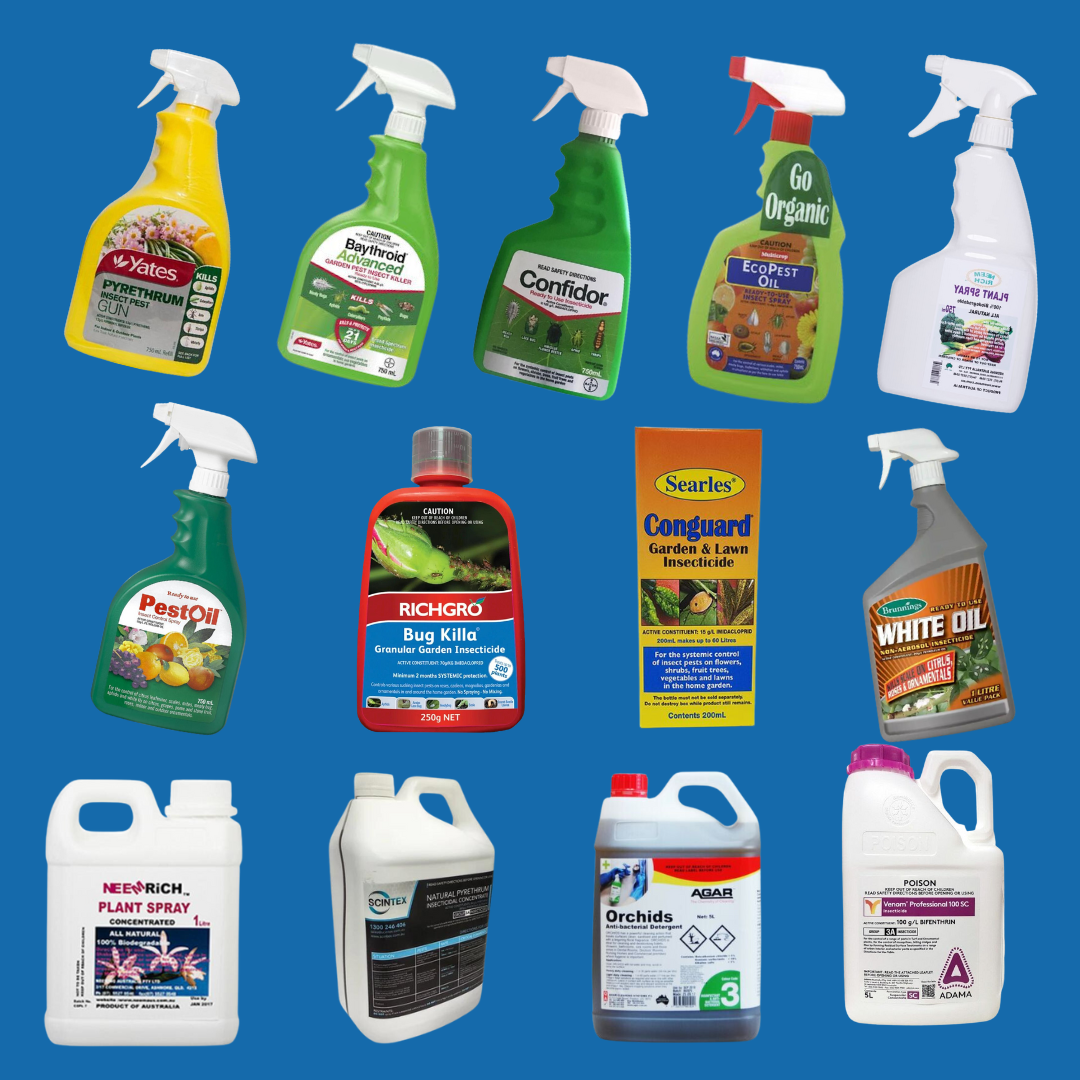
Insecticides On Orchids
Share

USING INSECTICIDES ON ORCHIDS
Orchids are a delicate and beautiful type of flower that requires careful attention and maintenance to ensure their longevity and health. However, orchids are also vulnerable to pests and diseases that can quickly take hold and damage or even kill the plant.
One common solution to this problem is the use of insecticides, which can effectively control insect infestations and protect orchids from damage. In this article, we will explore the use of insecticides on orchids, including how to choose the right product, when and how to apply it, and the potential risks and benefits.
Choosing the right insecticide
Before applying any insecticide to your orchids, it's essential to choose the right product that is safe and effective for your plants. There are many different types of insecticides on the market, ranging from chemical-based products to organic and natural solutions. While chemical insecticides can be highly effective, they can also be harmful to the environment and human health. Organic and natural insecticides are a safer and more environmentally friendly option, but they may not be as potent as chemical-based products.
Some of the most common insecticides used on orchids include neem oil, insecticidal soap, and pyrethrin. Neem oil is a natural insecticide that works by disrupting the feeding and reproductive behavior of insects. Insecticidal soap is another natural solution that is effective against a wide range of insect pests, including aphids, mealybugs, and spider mites. Pyrethrin is a chemical insecticide that is derived from chrysanthemum flowers and is highly effective against many types of insects.
When to apply insecticides
In general, it's best to apply insecticides to orchids during the early stages of an infestation when the pests are still relatively few in number. This will help to prevent the infestation from spreading and causing further damage to the plant. It's also important to follow the manufacturer's instructions carefully and to avoid over-applying the product, as this can be harmful to the orchid and can also contribute to the development of pesticide-resistant pests.
How to apply insecticides
When applying insecticides to orchids, it's important to follow a few key steps to ensure that the product is applied correctly and safely. First, make sure that you read and follow the instructions on the product label carefully. Wear protective clothing, such as gloves and a mask, to prevent exposure to the insecticide. Next, mix the product according to the instructions and apply it evenly to the entire plant, including the leaves, stems, and flowers. Be careful not to spray the product directly onto the roots, as this can harm the orchid. Finally, allow the product to dry completely before watering the plant or exposing it to direct sunlight.
Potential risks and benefits
While insecticides can be highly effective at controlling insect infestations and protecting orchids from damage, they can also pose some potential risks and drawbacks. Chemical insecticides can be harmful to the environment and human health, and overuse can contribute to the development of pesticide-resistant pests. Organic and natural insecticides are safer and more environmentally friendly, but they may not be as effective as chemical-based products.
In conclusion, the use of insecticides on orchids can be an effective way to control insect infestations and protect the health and longevity of these beautiful plants. When choosing an insecticide, it's important to choose a safe and effective product that is appropriate for your specific needs. By following the manufacturer's instructions carefully and taking the necessary precautions, you can apply insecticides to your orchids safely and effectively, and enjoy their beauty for years to come.
KEEP A DIARY TO RECORD INSECTICIDE/FUNGICIDE SPRAYING AS WELL AS WHEN PLANTS HAVE BEEN FERTILISED
INSECTICIDES
Searles Conguard - Systemic control of insect pests - aphids, bronze orange bug, mealybugs, thrips, soft scale, curl grubs, boisduval scale, flyspeck.
Yates Pest Oil - Insect control contact spray. Controls Citrus leaf miner, red scale, white/pink wax scale, soft brown scale, aphids, mealy bugs, white fly and spider mites, boisduval scale.
Yates Success - Caterpillars
Pyrethrum/pestoil - Aphids, thrips, caterpillars, ants, flies.
Dipel - Cabbage moth, white butterfly, caterpillars, grasshoppers.
Derris Dust - Grasshoppers, caterpillars.
Yates Mavrik - Caterpillars, aphids, mite.
Yates Rose Shield - Systemic insecticide, mitacide and fungicide. Controls black spot, powdery mildew, aphids, two spotted mites, thrips, caterpillar, whitefly, rust.
Searles TrifendSame - as Rose Shield.
Neem Oil - Systemic control of Boisduval scale, dendrobium beetle (spray every 5 days - 5ml per litre + detergent) mealy bugs, red spider mite, aphids, scale and thrips.
Isopropyl Alcohol - Mealybugs, boisduval scale.
Baysol, Defender - Garlic Snails, snails and slugs.
Here is a list of organic orchid insecticides:
Neem oil: Effective against spider mites, aphids, thrips, whiteflies, and mealybugs.
Pyrethrum: Effective against spider mites, thrips, and aphids.
Insecticidal soap: Effective against spider mites, aphids, mealybugs, whiteflies, and thrips.
Spinosad: Effective against caterpillars, thrips, spider mites, and leafminers.
Horticultural oil: Effective against spider mites, mealybugs, scales, and whiteflies.
Bacillus thuringiensis (Bt): Effective against caterpillars.
Garlic spray: Effective against aphids, whiteflies, and spider mites.
Diatomaceous earth: Effective against slugs, snails, and crawling insects.
Rosemary oil: Effective against spider mites, aphids, and thrips.
Cinnamon: Effective against fungus gnats and other soil-borne insects.
It's important to note that even though these are organic insecticides, they should still be used with caution and in accordance with the manufacturer's instructions. Additionally, it's always a good idea to test the product on a small area of the plant before applying it to the entire orchid.
Have a great week,
Peter Johnson
Orchids In Print
P.S. Come in and see the great range of products we have with named orchid images and orchid puns printed on them.


